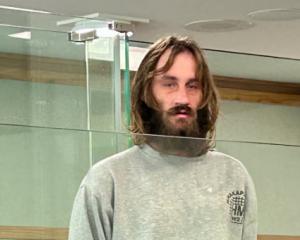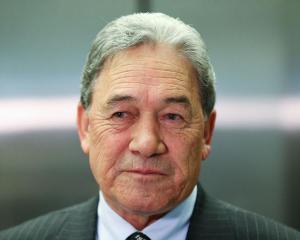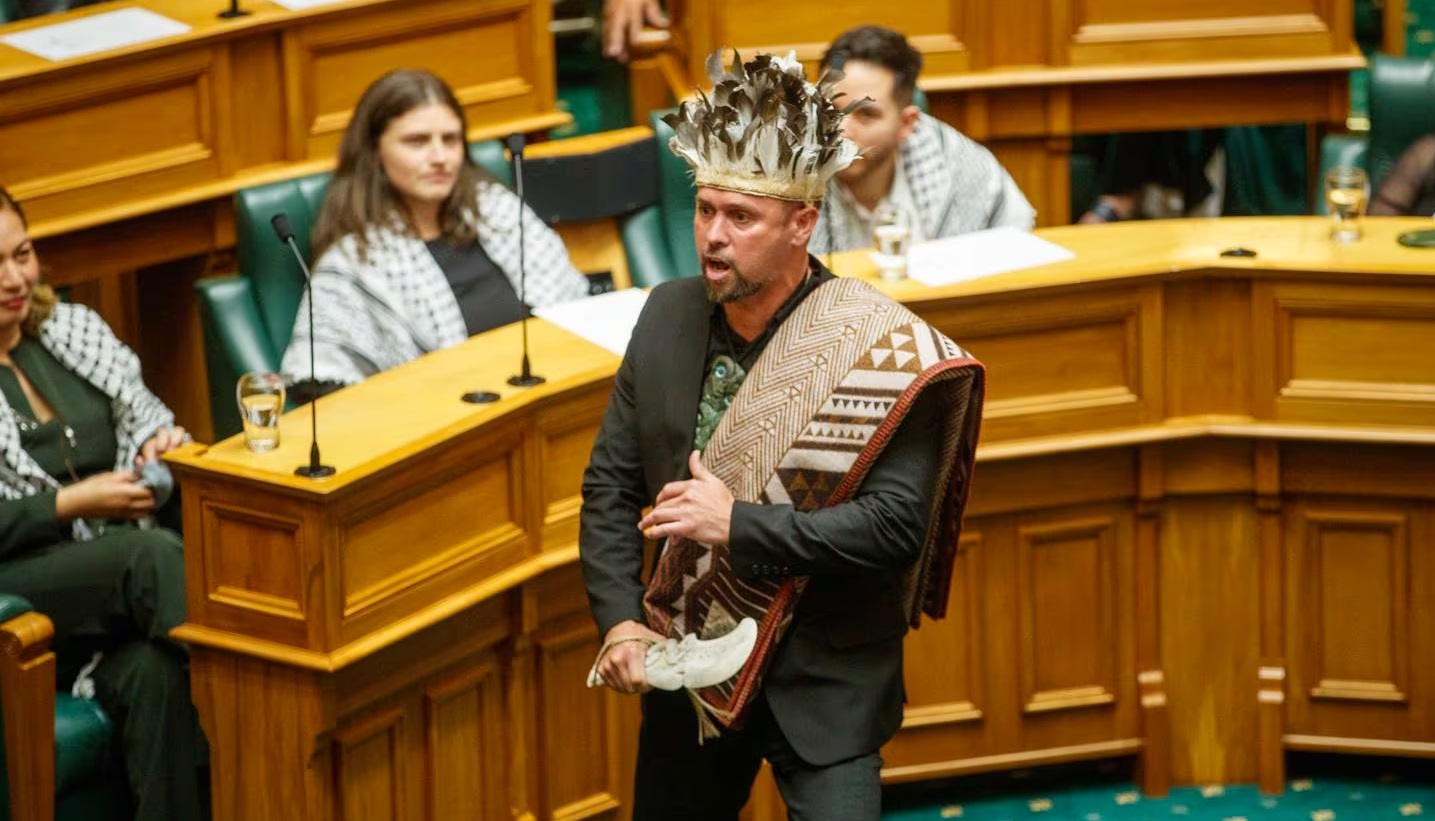
National’s Gerry Brownlee has also been confirmed as the new Speaker of the House.
It comes amid a national day of protest outside the halls of power focusing on some of the new government’s policies on Te Tiriti/The Treaty of Waitangi, with fellow opposition parties Labour and the Greens also pledging to fight back.
MPs of the new government have come together in the House for the first time for the swearing-in ceremony.
Several members of the Māori Party wore cultural garments, while some Green Party MPs wore keffiyeh over their shoulders, a sign of their support for Palestine amid the Israel-Hamas conflict.
Tākuta Ferris, the first Te Pāti Māori MP to be sworn in, has broken protocol in speaking from his seat and swearing to be faithful to mokopuna according to tikanga Māori and perform his functions as MP in accordance with Te Tiriti o Waitangi.
Ferris then signed a document on the desk of party co-leader Rawiri Waititi which states the promise to mokopuna and the Treaty, before performing a haka in front of the Clerk of the House. He then swore the Parliamentary oath like previous MPs.
MPs Mariameno Kapa-Kingi and Takutai Moana Natasha Kemp have also sworn their allegiance to Te Tiriti o Waitangi before following up by stating the oath concerning allegiance to the King.
Te Pāti Māori Hauraki-Waikato MP Hana-Rawhiti Maipi-Clarke mentioned Māori King Kiingi Tūheitia during her initial statement in te reo.
MPs went one-by-one, stating the oath mainly in English but some also used te reo Māori or other languages.
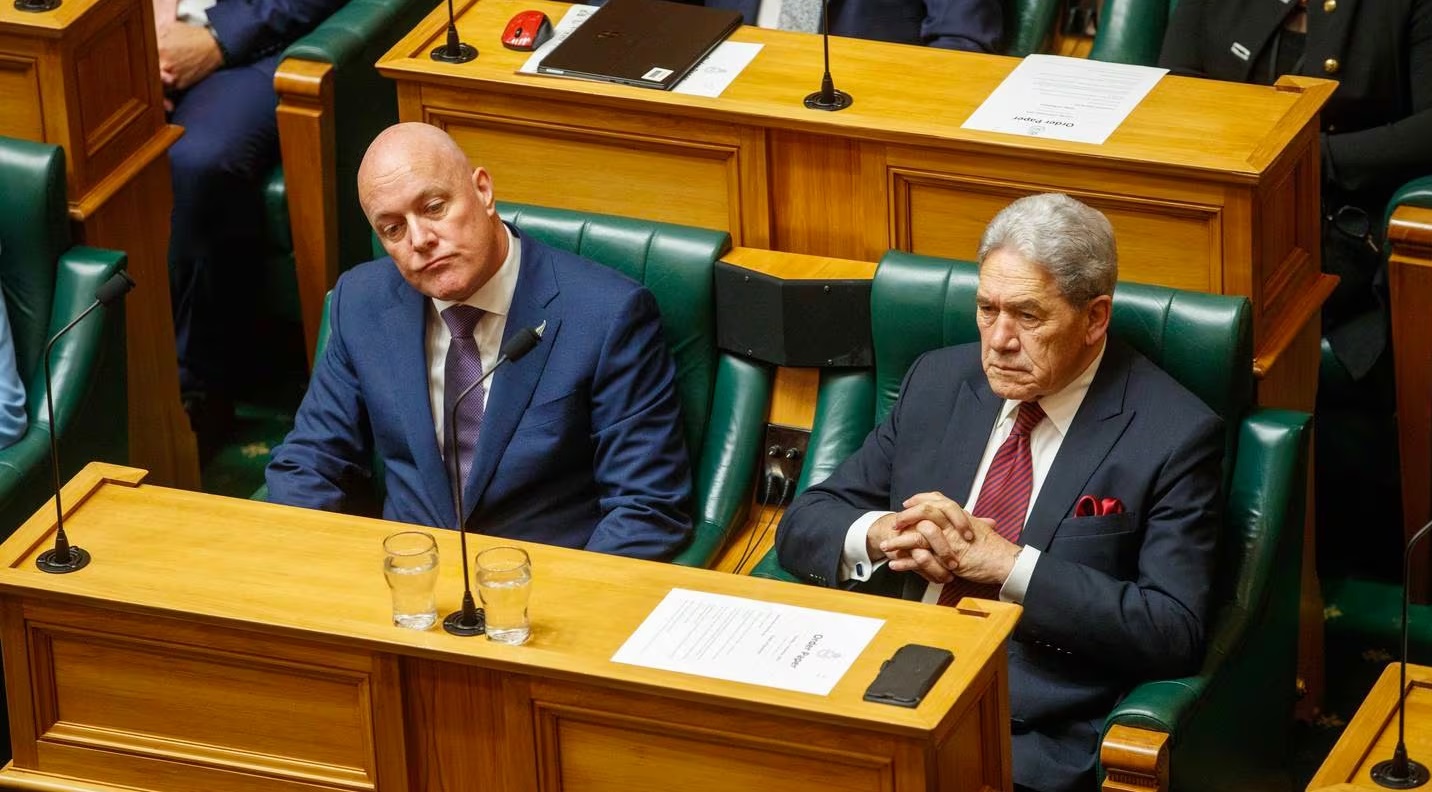
Labour’s Willie Jackson took the opportunity to poke fun at New Zealand First leader Winston Peters by asking the Deputy Prime Minister to say the oath in te reo Māori - a joke informed by Peters’ belief te reo was over-used.
Peters said “boo” in response and spoke the oath in English.
Brownlee made new Speaker of the House
National’s Gerry Brownlee has just been confirmed as the new Speaker of the House.
He wasn’t the only nomination - Te Pāti Māori co-leader Debbie Ngarewa-Packer nominated Labour MP and former Speaker Adrian Rurawhe to continue in the role.
However, Rurawhe did not accept the nomination. Waititi cheekily said: “What a pity.”
Tradition dictated the new Speaker was supposed to pretend to resist as two National Party whips pulled him towards the Speaker’s chair. Brownlee didn’t really play along, walking normally.
“What a surprise”, were Brownlee’s first words as Speaker, acknowledging the open secret his nomination had long been.
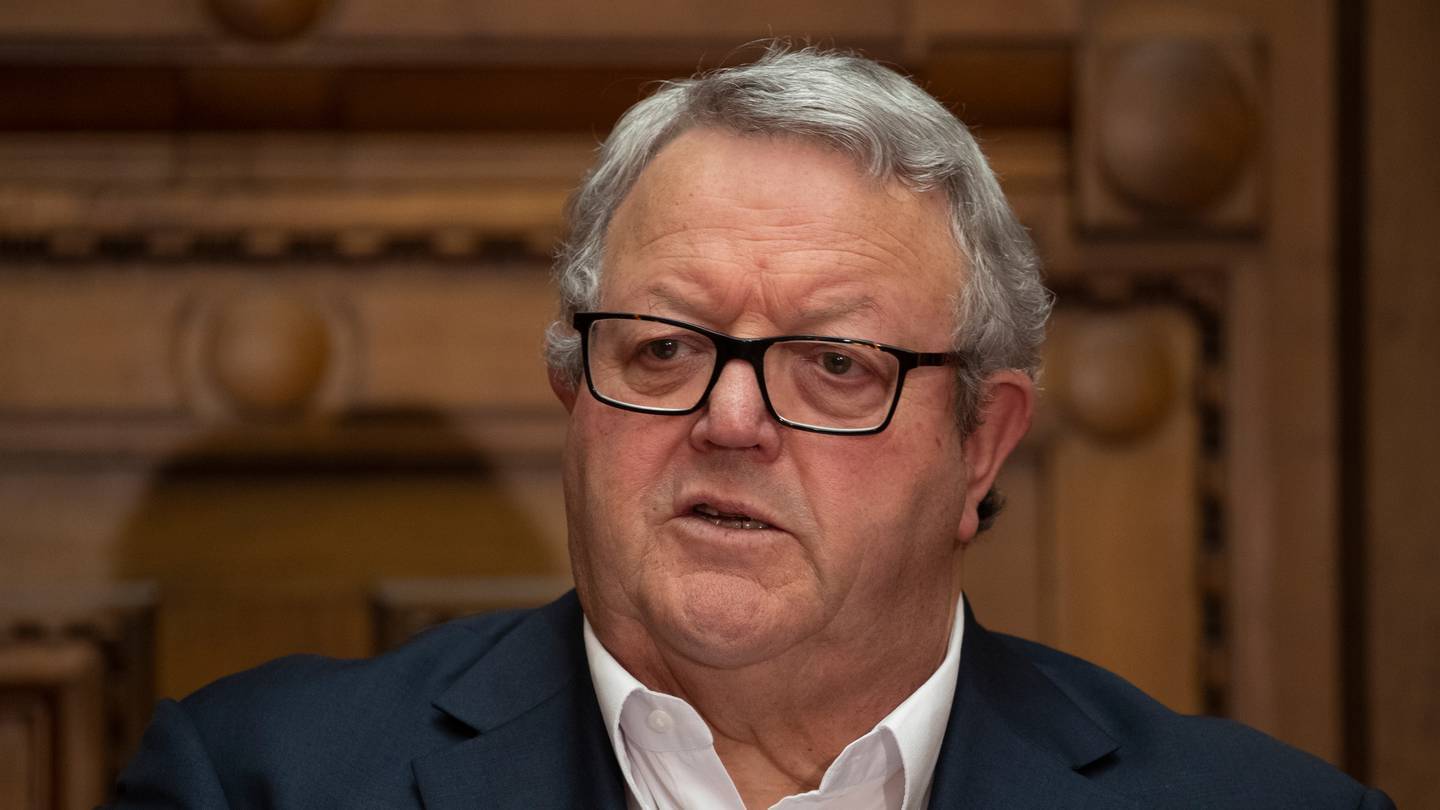
“I want to express that we all might get on a little better than I got on with some of the Speakers before.
“Probably my biggest challenge will be keeping myself in order.”
Brownlee said he wanted to acknowledge Adrian Rurawhe before him who had brought “calm and dignity to the House at a time it was needed”.
He said he was grateful for their discussions and counsel offered by Rurawhe if needed.
Brownlee said he would look to instil an open environment in the House with “free flow of debate” and he would not get “hung up on the rules”.
On standing orders, he said they would be a “framework but not absolute”.
History of objecting swearing-in ceremony
It’s not the first time Te Pāti Māori’s MPs have raised objections with the swearing-in ceremony, that requires MPs to pledge allegiance to the Crown. Back in 2005 all four MPs swore an oath to Te Tiriti as well as the Queen, before being forced to repeat it without a Treaty reference.
In 2011, Hone Harawira was kicked out of Parliament after seeking to only pledge allegiance to Te Tiriti. In 2020, co-leader Rawiri Waititi swore the oath in te reo on a copy of Te Tiriti and a Ringatū Bible.
A spokesman for the party said they would first do their own oaths, including a reference to Te Tiriti o Waitangi, before taking the Parliamentary oath which must occur for them to become MPs.
The party has been highly critical of the process, describing it last week as “symbolic of the colonial power that Parliament places above the mana of tangata whenua”.
They say it is not the equal partnership consented to by Te Tiriti o Waitangi and have been calling for Parliament to include both options.






